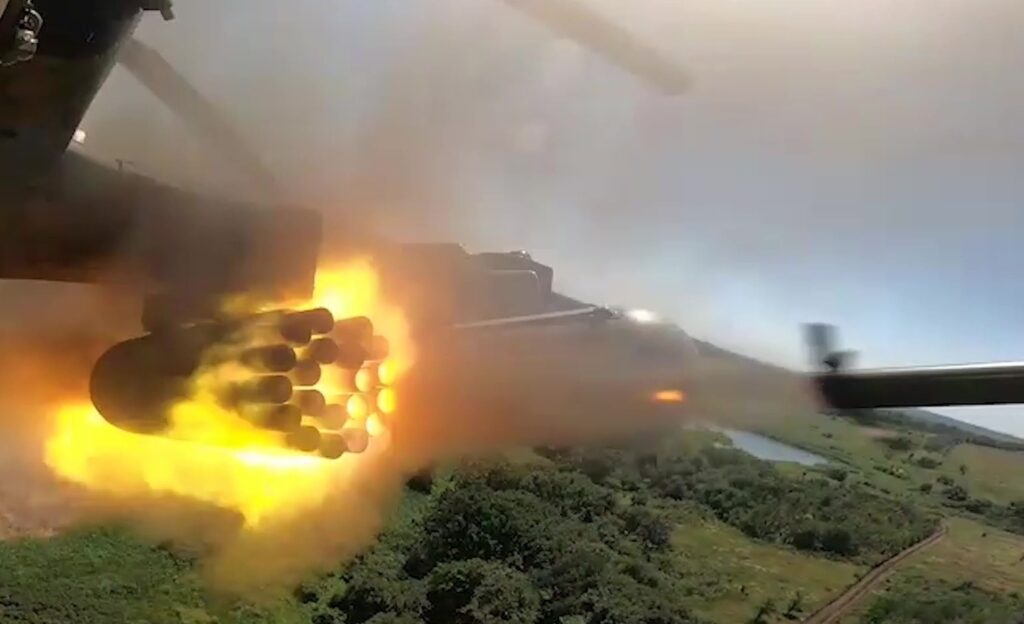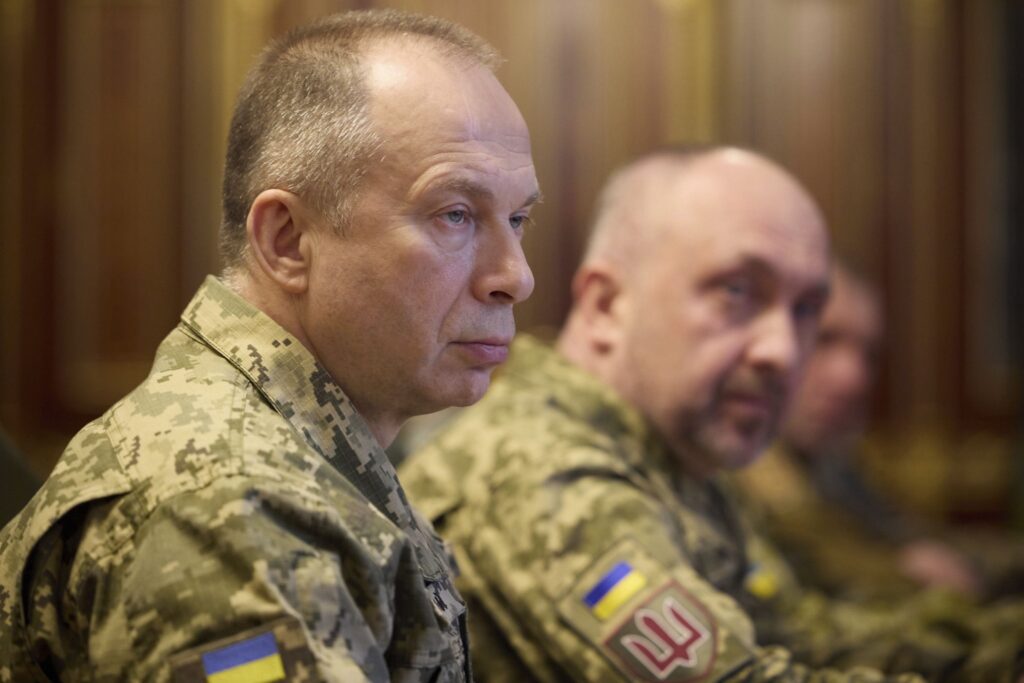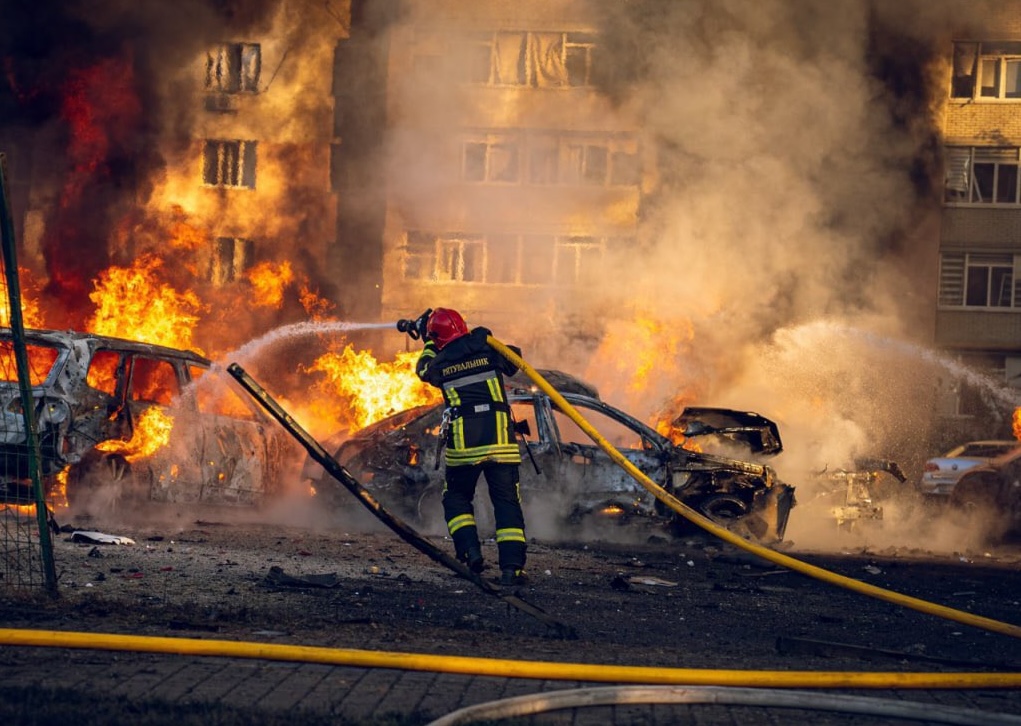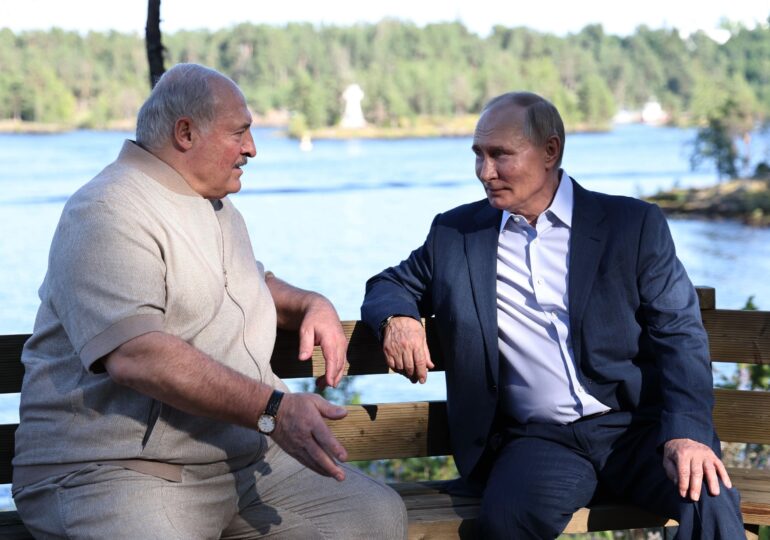Meetings called by Putin, so far, have had no effect on the frontline. Ukrainian forces, two weeks after entering Russia, continue to advance, capture towns, destroy bridges, and take hundreds of prisoners.
These days, Alexander Lukashenko, the President of Belarus, the closest ally of Putin, is very agitated.
He has conveyed to the Russian leader that it would be good to start peace negotiations, then announced that he is transferring tanks to the border, warning Ukraine not to attempt to enter the country. After that, he announced that he might not run for a new term.
"I have already started to say it publicly. You must get used to the fact that someone else will be in the president's seat. I'm not saying I will leave tomorrow or the day after... Well, it will happen at some point. You have to get used to the fact that I am not eternal. Nobody is," he stated in an interview dated August 18, given to the official news agency of Belarus.
Lukashenko's fluctuating attitude reflects, in reality, Putin's fate, and the statements of the Minsk leader indicate that the situation in Moscow is far from clear.
Putin's Allies Have Nightmares
Lukashenko's references to a withdrawal aim to subtly attempt to calm his own population.
The great fear of the Belarusian president is that a new movement of the population will start to overthrow the political regime.
The fact that he announces his departure is a subtle attempt to buy time.
Lukashenko knows that, in the event of a possible revolt, Putin no longer has the power to save him as he did three years ago.
The situation has changed radically, and the presence of Ukrainian troops in Russia is generating nightmares for all of Putin's allies, including the political regimes in Iran, China, and North Korea.
We must not forget how Western leaders turned a blind eye for years to human rights violations and democratic principles in Russia. They were friends with Putin. They looked him in the eye and could - as former US President George W. Bush said - <look into his soul>. They invited him to high-level meetings, conferring international credibility on his regime.
Vladimir Kara-Murza, Russian dissident, former political prisoner
For two weeks, it was quiet; Putin's close associates were waiting for him to send troops and quickly disperse the Ukrainian incursion forces.
But it didn't happen, and Lukashenko's complaints show that the situation in the Kremlin is becoming increasingly serious and volatile.

"Changes in Russia come... suddenly and unexpectedly, just like in 1905 and 1917, the two Russian revolutions or in 1991, the dissolution of the Soviet Union. We must think about tomorrow today. Putin's regime is not eternal, and once it ends, it is important for democracy and a free economy to be restored. Russia must be reintegrated into European structures and the international community," stated Vladimir Kara-Murza, a Russian dissident, released from prison in the prisoner exchange two weeks ago.
Defenseless
What shocked many military experts, as well as Putin's allies, was the fact that the Russian president failed to devise any defense strategy for his own territory.
He has refused and still refuses to bring experienced troops from the Donetsk region, where Kremlin forces have the initiative, but he also does not have other forces available to face the Ukrainian attack.
He took the command of the defense in Kursk from Gerasimov, the army chief, and transferred it to the FSB, and extreme tension between spies and military personnel is resulting in the deployment of untrained recruits who are surrendering in large numbers.
People say that another reason Putin does not want to say that Russia is at war is related to announcing a new mobilization, like the one in September 2022, and another million young people could emigrate. The elites in Moscow and St. Petersburg could react
Anders Aslund, economist and writer
With each passing day, it becomes increasingly clear that General Syrsky, the commander of the Ukrainian army, planned the operation meticulously, had good information, and used elite troops to strike Russia at its weakest point.

The Ukrainians are not at a standstill; every day they achieve a military objective, advance on the front in surprising directions for an opponent who fails to defend itself.
"About a dozen generals and senior defense officials have been arrested by the FSB for corruption, but corruption is not a crime in Russia, but a requirement. This indicates that the entire military leadership has been eliminated, even if Shoigu and Gerasimov have been kept in office formally," wrote Anders Aslund, economist, author of the book "Russia and Crony Capitalism".
Effects in Moscow
"To make matters worse, Putin appointed his former bodyguard Alexei Dyumin to command the FSB in the Kursk region. Placing a special forces officer in charge of the FSB troops has created confusion and tension. FSB troops in Kursk surrendered, waving white flags," Anders Aslund further explained.

Reports from Ukrainian and Western journalists inside Russia, Kiev's armored vehicles crossing the border unhindered, and the fact that residents feel more protected by the occupiers than by the Kremlin's military have created a picture that was hard to imagine two and a half years ago when Putin launched the invasion.
This weakness displayed by Russia is already having effects on the political regime in Moscow, and Lukashenko's struggles these days show that the situation is worsening.
It is impossible to predict when a major change will occur in Russia, but it looms in the air and can happen at any moment.

